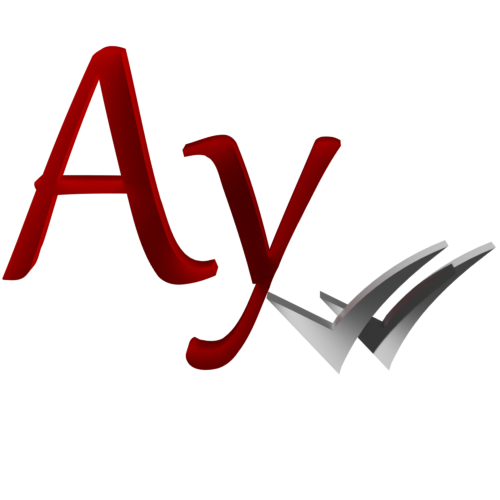AyMINE – Technical documentation
Modules
 Task, project & quality management
Task, project & quality management
Manager approval with the task report
Why some data can't be deleted
Adminitration of areas, projects, calendars
Region / project / methodology
Change management process in a project
GDPR and record of qualifications
Qualification of user or contact
Right to Manage Qualifications
Failure Analysis for an Individual Property of a Component or Process
FMEA – Probability of Detection
FMEA – Probability of Occurrence
 Task, project & quality management
Task, project & quality management
Administration of the Task Management Module
System rights for the task management module
Improvements and Preventive Measures
Methodology and Quality Management systems
What a methodology / QMS consists of
Problems, tickets and their management
Collaborative Resolution of Multiple Problems
Customer Service Response Generation
Incident and Quality Issue Management
Objects affected by the problem
Problems, Incidents, Helpdesk Tickets
Return project plan by baseline
Sample tasks and methodologies of the area
Effect of the task on the right to modify the attached object
The person responsible for the task
Working procedure – task definition
Objects related to the task pattern
 Contacts and directories module (CRM)
Contacts and directories module (CRM)
Order overview for customer groups
 Contacts and directories module (CRM)
Contacts and directories module (CRM)
System Permissions and CRM Module Settings
Send bulk messages in compliance with GDPR
How to correctly forget a person's details
Unsubscribe and set preferences
for bulk mail
 Web management and automation
Web management and automation
Receiving a message from the web
Human resources
Personalistics – User Permissions
Human Resources module security
Manage department / division data
Overview of Personnel Information for pracov# Employment Contract
Synchronizing staff and system users
 Products, assets and sales
Products, assets and sales
Received order for goods or services
Finance management
Metrics and Measurements
Technical Modules
Sabre plugin module
Enterprise Architect connector
Database link to Enterprise Architect database
Enterprise Architect connector
System Modules
 The AyMINE Framework Module
The AyMINE Framework Module
AyMINE — Tips for Mobile Usage
Configure how your system looks and works
Gestures and Keyboard Shortcuts
More about how the system works
Private notes and tags for objects
Overview of Modules and Record Types
Filtering in the list of records
 System Management
System Management
Additional functions with files
Copying and moving files between objects
Files (documents) linked to the object
Formatted texts in the application
Gateway settings for external messages
IMP gateway settings for email communication
Internet Call Gateway Settings
Message with the outside world
 Address books and contacts
Address books and contacts 
The Address book allows you to keep track of business partners, project collaborators, customers, as well as an extended overview of information about your own employees. The generic term subject is used for all groups.
Each subject belongs to one Address book. It is not possible to place one entity in multiple directories.
Terminological note: The term contact means an email, address, or other type of contact to a specific entity. Therefore, contact and subject are not the same thing!
Types of entities
The system allows you to store 3 basic types of entities described in the following sections
 Persons
Persons
A person is always a specific physical person.
For an individual you can record details such as first name or titles, which does not make sense for other entities.
A natural person can be self-employed or another type of business. Therefore, it is also possible to record the registration number and VAT number for a natural person.
The individual may be in the address book in his/her own right or may be recorded as an employee of an organisation or one of its divisions. The address book does not support the registration of one person as an employee of more than one organisation.
 Companies / organizations
Companies / organizations
Company allows you to enter an organization into the system.
The organization can be described not only with information directly about the organization (name and other data), but also information about its structure and persons (employees) can be stored. Employees are registered directly with the organisation or can be registered within a division or organisational unit.
 Division/organisational unit
Division/organisational unit
Divisions or organisational units are always part of an organisation. They can also form a hierarchy, so that a unit can be part of another unit.
Within an organizational unit, the employees of that unit can be registered. A worker can be a member of only one organisation or its organisational unit.
Note: Organizational units in the Address book have nothing to do with user groups within the AyMINE system. The registration of internal workers within the Address book and any transfers between organizational units in the Address book have no effect on the access rights settings in AyMINE.
Address book rights
Each address book is in a business area. We recommend creating a separate business area just for the address book, but it is not necessary. The rights to see or edit contacts are governed by the rights to the business area in which the address book is located.